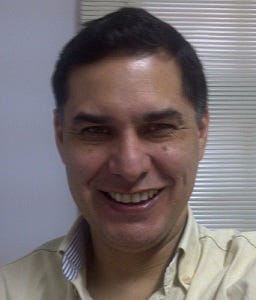Personal Telecom, Paraguay: “LTE is the road we have to take sooner or later”
Adolfo Avalos is Engineering Manager for Personal Telecom Paraguay and is appearing on Day One of the LTE Latin America 2012 conference, taking place on the 17-18 April 2012 at the Windsor Barra Hotel, Rio de Janeiro, Brasil. Ahead of the conference Telecoms.com speaks to him on his views on the engineering challenges that have to be met as LTE is adopted.
April 11, 2012


Adolfo Avalos Is Engineering Manager For Personal Telecom Paraguay
Adolfo Avalos is Engineering Manager for Personal Telecom Paraguay and is appearing on Day One of the LTE Latin America 2012 conference, taking place on the 17-18 April 2012 at the Windsor Barra Hotel, Rio de Janeiro, Brasil. Ahead of the conference Telecoms.com speaks to him on his views on the engineering challenges that have to be met as LTE is adopted.
What are the main challenges you have faced, or expect to face, as you roll out LTE?
Whenever we deploy new technologies in the network we have to meet the challenge of obtaining physical space; we have to install more equipment and often do not have enough room to accommodate it. We also have the challenge of backhaul transmission, which is especially an issue for access nodes of medium and high capacity where we have not migrated to higher capacity technologies like IP. We also have the challenge of integrating new technology to the existing packet core network and also the interoperability of this new technology with the existing ones; e.g. ‘Circuit Switched Fallback’, which diverts calls from LTE to 3G.
To what extent can LTE act as an insurance against declining revenue streams from voice and SMS?
For operators LTE means greater network capacity and an opportunity to provide more, and better, services. It does not give us an assurance about the possibility of losing revenue from the decline of voice and SMS. We believe the only way forward is to become more ingenious with tariff plans and value added services.
Is there a place moving forward for unlimited data tariffs? Are they sustainable?
LTE offers higher capacity but also has its limits. We have the experience of some operators where it was found that two per cent of users were responsible for 20 per cent of total traffic use. This is always detrimental to other users so we do not believe that unlimited traffic plans are sustainable over time.
With so much attention paid to the radio access network is there enough focus on backhaul?
Both, operators and manufacturers have warned us even long before 3G of the need for higher capacity transmission systems to support these high capacity access networks and since then we have had a close focus on backhaul.
Is there enough innovation occurring in the mobile network industry? Can you provide some examples?
We do see some innovation but maybe not enough. One example of innovation is the MSR “Multi Standard Radio”, which enables us to activate more than one technology (GSM, UMTS and LTE) in the same radio unit and thus simplify installation and operation in the network.
What changes would you hope to see in the industry in the next five years?
I hope to see more the unification of network technologies. Today we have 2G, 3G, wifi, LTE and in some cases WiMAX on the same network. If we could reduce it to only one, both in equipment and in the spectrum, we would achieve greater resource efficiency and hence provide a higher quality of services to users.
Why are you attending the LTE Latin America summit and what are you looking forward to most?
It´s very important for us hear other operator’s opinions about the progress taking LTE to the global market and in the region because we believe it’s the road we have to take sooner or later.
The LTE Latin America 2012 is taking place on the 17-18 April 2012 at the Windsor Barra Hotel, Rio de Janeiro, Brasil. Click here to register your interest.
Read more about:
DiscussionAbout the Author
You May Also Like


.png?width=300&auto=webp&quality=80&disable=upscale)







.png?width=300&auto=webp&quality=80&disable=upscale)


_1.jpg?width=300&auto=webp&quality=80&disable=upscale)